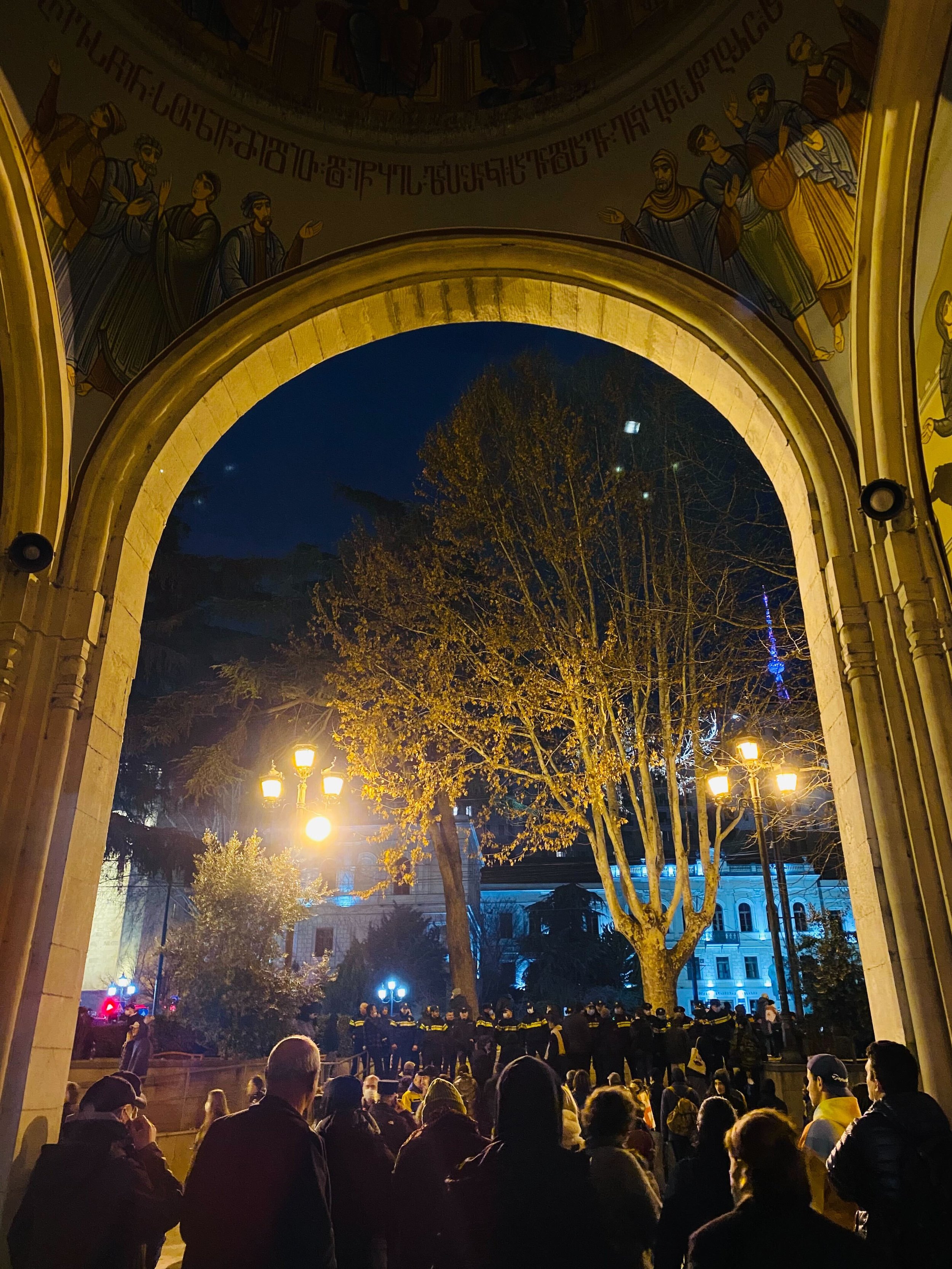Defending Freedom of Speech: Tbilisi Protests Thwart Planned “Foreign Agents Bill”
Photo by Lika Lejava
In October 2022, The Circle team travelled to Tbilisi, the capital of Georgia, to conduct a two-week design sprint and establish a new media hub that would connect the Georgian media scene with its counterparts across Europe.
Since The Circle partners’ visit, the situation for journalists and independent media in the country has taken a turn for the worse. On 2 March, the government debated a controversial bill which would require non-governmental organisations that receive more than 20 percent of their funding from foreign sources to register as "foreign agents", making them susceptible to monitoring and possible sanctions.
The bill was met with fierce opposition from civil society and activists, who fear that it would be used to silence dissenting voices. In the past weeks, thousands of people took to the streets in Tbilisi. Despite the government's claims that the bill would increase transparency and prevent foreign interference in Georgia's internal affairs, protesters argue that it amounts an attack on civil society and would limit the space for democratic participation and expression.
In fact, the proposed legislation closely resembles a similar law adopted by Russia in 2012, which led to the closure of numerous independent NGOs and media organisations in the country, jeopardising freedom of speech and of the press.
Demonstrators in Tbilisi were met with a heavy-handed response from the police, who used tear gas, pepper spray, water cannons and batons to disperse the crowds. Dozens of protesters were arrested and many reported being subjected to police brutality.
“I was standing in front of parliament on the second day of the protests,” said Lika Lejava, a journalist for Formula TV and member of the Circle Tbilisi hub. “Special forces were throwing gas from every side and there was no way to escape it.” The journalist describes people panicking and running in all directions. Despite the chaos, “people were really organised and were helping each other. After the situation got better, they went back to the parliament.”
Human rights organisations have condemned the use of violence and called for an investigation. After four days of protests, the Georgian government announced that it would be dropping the bill, citing the need for further discussion and consultation with civil society. Protesters remained sceptical and continued their protests until the government scheduled a parliamentary session to discuss the issue.
After causing a major political crisis and putting Georgia's aspirations for closer ties with Europe in jeopardy, the bill was dropped in the second parliamentary hearing on 10 March. However, the Georgian government still maintains its necessity and plans to persuade the public of its importance in the future. Many therefore remain cautious.
The Tbilisi protests are a reminder that protecting civil society and fighting oppression is a shared responsibility. The Circle and its partners — Are We Europe, n-ost, Hostwriter, and Arty Farty — stand in solidarity with the people of Georgia and support their ongoing struggle to protect the right to free expression and association, by fostering a culture of transparency and increased collaboration between European and Georgian media and culture.


